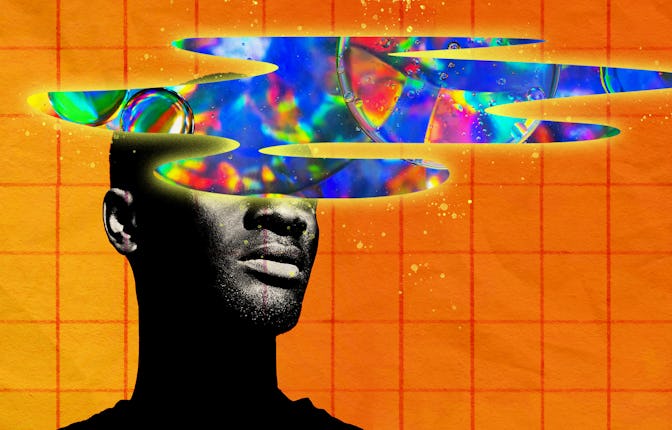For once, tech might be good for our mental health
Research suggests that new AI could significantly improve our therapy experience.

Finding the right therapist is almost as hard as finding the right partner — and with the upswing in telehealth platforms, the process feels much the same. You swipe, you get excited, you are disappointed, repeat. Online therapy has faced a lot of (well-deserved) criticism recently, largely due to the fact that an app can’t possibly deliver wellbeing on demand. Now, though, therapists are using artificial intelligence (AI) to help them treat people — and the results look promising.
There are a couple ways researchers are using AI in an effort to improve therapy, as MIT Technology Review recently reported. Two companies in the U.K., Ieso and Lyssn, employ the technology to analyze the language exchanged between therapists and clients. The software uses a technique called Natural Language Processing (NLP) to analyze therapy session transcripts and discern which parts of the conversations are effective in treating certain conditions. The idea is that practitioners armed with that data are then better able to tailor therapy to meet their clients’ needs.
“It’s amazing how a few words can change a life,” Andrew Blackwell, chief scientific officer at online therapy provider Ieso, told Technology Review. Ieso told Technology Review that the recovery rate for patients treated using their novel techniques is 53%, which is higher than the U.K.’s national recovery rate of 51%. A 2% upswing may not seem like a big deal, but when you consider the fact that 1.6 million people are referred to therapy in the U.K. each year, it begins to seem more substantial. That’s 32,000 more people who could potentially be helped each year.
Lyssn is developing similar technology, but instead of conducting therapy itself, the company provides software to clinics and universities. Lyssn then helps monitor the quality of the services the clinics deliver to clients. Trent Psychological Therapies Service, an independent clinic in the U.K. that’s currently conducting a trial of Lyssn’s software, sees great potential for this kind of technology to standardize best practices in psychotherapy.
“You’d think therapists who have been doing it for years would get the best outcomes,” Dean Repper, Trent’s clinical services director, told Technology Review. But, he noted, that’s not always the case — and even when it is, therapists may not understand exactly which parts of their treatment and conversations are producing results. AI-assisted therapy could potentially help therapists figure out what they’re doing right and prevent them from making mistakes that might negatively impact their patients’ mental health. And, from an accessibility standpoint, the ability to treat clients more efficiently may allow therapists to expand their patient rosters, making therapy more accessible for all.
Personally, I get a bit concerned when I hear a lot of talk about technology and efficiency when it comes to emotional wellbeing. Humans aren’t machines, and feelings aren’t a problem to be fixed. That said, if machines can actually improve mental health outcomes and make mental healthcare more available without turning therapy into an assembly line, I’m in.